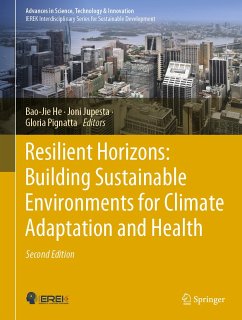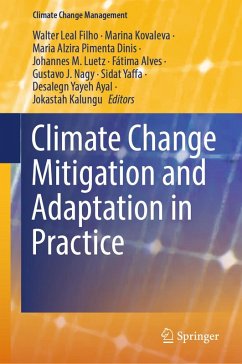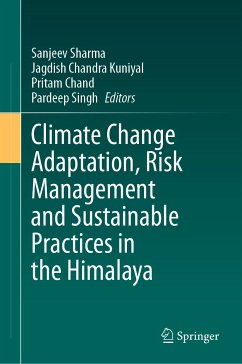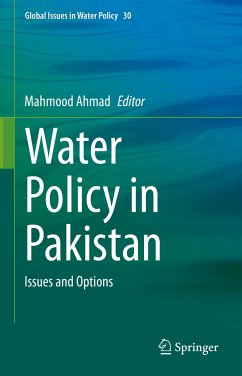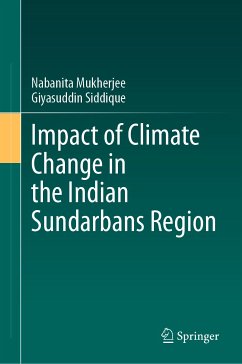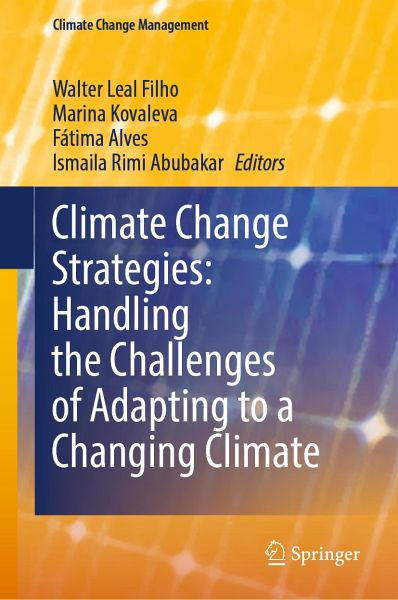
Climate Change Strategies: Handling the Challenges of Adapting to a Changing Climate (eBook, PDF)
Versandkostenfrei!
Sofort per Download lieferbar
120,95 €
inkl. MwSt.
Weitere Ausgaben:

PAYBACK Punkte
60 °P sammeln!
This book includes information, experiences, practical initiatives and projects around the subject matter and makes it available to a wide audience. It addresses the scientific, social, political and cultural aspects of climate change impacts and respective solutions in an integrated and coherent way.Climate change as a global phenomenon imposes new challenges for survival. Extreme weather events including heat waves, storms, droughts as well as rising sea levels, warming oceans and melting glaciers threaten people's livelihoods and communities, ecosystems and habitats. Furthermore, it affects...
This book includes information, experiences, practical initiatives and projects around the subject matter and makes it available to a wide audience. It addresses the scientific, social, political and cultural aspects of climate change impacts and respective solutions in an integrated and coherent way.
Climate change as a global phenomenon imposes new challenges for survival. Extreme weather events including heat waves, storms, droughts as well as rising sea levels, warming oceans and melting glaciers threaten people's livelihoods and communities, ecosystems and habitats. Furthermore, it affects the entire food chain and increases competition for natural resources fuelling socioeconomic tensions. The results of the latest IPCC report highlight the urgent need for combating climate change. The adaptation measures to be undertaken range across sectors, thematic fields and geographical locations.
Based on this need, the book focuses on the high-quality, interdisciplinary contributions on the scientific, social, economic, political and cultural aspects of climate change challenges and solutions
Climate change as a global phenomenon imposes new challenges for survival. Extreme weather events including heat waves, storms, droughts as well as rising sea levels, warming oceans and melting glaciers threaten people's livelihoods and communities, ecosystems and habitats. Furthermore, it affects the entire food chain and increases competition for natural resources fuelling socioeconomic tensions. The results of the latest IPCC report highlight the urgent need for combating climate change. The adaptation measures to be undertaken range across sectors, thematic fields and geographical locations.
Based on this need, the book focuses on the high-quality, interdisciplinary contributions on the scientific, social, economic, political and cultural aspects of climate change challenges and solutions
Dieser Download kann aus rechtlichen Gründen nur mit Rechnungsadresse in A, B, BG, CY, CZ, D, DK, EW, E, FIN, F, GR, HR, H, IRL, I, LT, L, LR, M, NL, PL, P, R, S, SLO, SK ausgeliefert werden.





